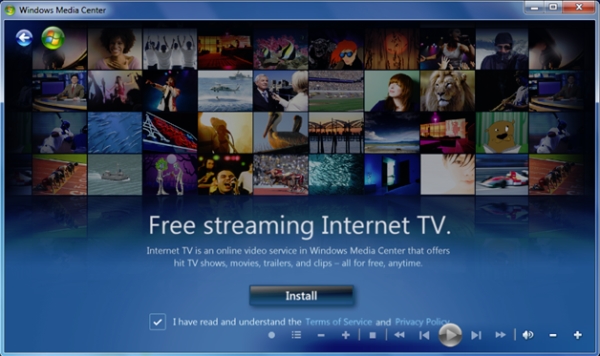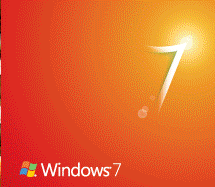
Yes, but is it funny? US Chamber issues takedown notice for Yes Men parody
It looks like the US Chamber of Commerce Web site, and has a convincing URL: www.chamber-of-commerce.us. It bears the seal of the Chamber, a private organization that advocates for business issues before federal legislators. And where you'd expect to find links to the real Chamber Web site, there they are -- real links to www.uschamber.com.
But it's another daring act of imitation crafted by the self-proclaimed impostors known as the Yes Men -- the same group that, in 2004, successfully pretended to be Dow Chemical representatives, appearing on the BBC to take responsibility for the Bhopal chemical plant tragedy. This was after Yes Men posted a similar impostor Web site purporting to come from Dow Chemical. That site had a press response address, to which the BBC addressed its request for an interview, and from which Yes Men -- still pretending -- complied.

Palm Pixi lands Nov. 15, indicates a third webOS device
Today, Palm announced that the Pixi, the company's second webOS device and slimmer, lighter-weight cousin to the Pre, will be available for the holiday season on November 15 exclusively through Sprint.
With a 2.63" multi-touchscreen, 8 GB of internal memory, Bluetooth 2.1+EDR, a 2 megapixel LED flash camera, and integrated GPS, the Pixi lightens up on many of the Pre's specs (smaller screen, slower processor) and eliminates the Wi-Fi radio entirely.

Web search in a post-Twitter world
We all contribute to the news cycle when we post timely content online, even if it's 140 characters or fewer, and this week we learned that our little bits of information have substantive value when search giants Google and Microsoft announced that they will index our tweets and status updates.
But the sheer volume of content that we produce could be a problem, and Twitter users who find day-to-day value in the service may scoff at the idea that the "information firehose" of live content can be tapped and made searchable. It doesn't take extensive use to see that most tweets are in fact worthless, and that thousands of bots simply use Twitter as a tool for free promotion, by tagging links to a particular Web site with trending topics.

McCain's 'Real Stimulus' to go head-to-head against FCC's 'net neutrality'
The day after the US Federal Communications Commission voted unanimously to begin debate on the possible introduction of new federal regulations governing how Internet service providers may delineate and manage services for their customers, Sen. John McCain (R - Ariz.) announced he will be proposing simple and swift legislation that would forever separate the Internet from the FCC's purview.
Sen. McCain's office presented Betanews with the very latest draft of the bill this afternoon, which has yet to be reported to the floor (thus it does not yet have a number), and has within the last few hours been renamed the "Real Stimulus Act of 2009." Its earlier name, the "Internet Freedom Act," clashed too strongly with competing pro-net-neutrality legislation introduced earlier this year in the House. As it stands now, it's only a two-page bill, the principle clause of which reads: "The Federal Communications Commission shall not propose, promulgate, or issue any regulations regarding the Internet or IP-enabled services." Exceptions would be in cases of national security, to ensure public safety, or to aid in law enforcement activities; and existing regulations to that effect would still be considered in effect.

Microsoft wins round one in its battle against Vista
Anyone who would continue to frame the consumer PC market in 1980s terms, as a continuance of the old war between Microsoft and Apple, would be sorely disappointed by this morning's earnings news from Microsoft. The measured candor that continues to emerge from CFO Chris Liddell suggests that Macintosh and iPhone are not even on the company's radar at the moment, and that his real battle is against a tougher and more menacing foe: Vista.
As of yesterday, it was officially okay for Microsoft to pronounce Vista part of its past, to "un-support" it from a marketing standpoint (though certainly not from a service standpoint). Steering Microsoft clear of the perfect storm -- the effects of the global recession, coupled with the peak in negative attitude toward Vista -- means putting Vista behind it, placing it in the adversarial role normally characterized by someone who looks a lot more like Justin Long than John Hodgman.

Microsoft Q1 2010 by the numbers: Windows license sales at record levels
Microsoft may have quite a headache, but the economy finally isn't whacking the company as hard. This morning, Microsoft announced fiscal 2010 first quarter results before Wall Street's opening bell, beating analyst consensus expectations. Mixing metaphors, Microsoft's results don't stink as bad as they have for the last couple of quarters.
Windows 7 is off to a resounding start. Microsoft launched the new operating system yesterday, but PC OEMs have been buying the software for months. During a conference call with financial analysts this morning, Bill Koefoed, general manager of Microsoft investor relations, said that Windows license sales were strongest ever for any single quarter.

Our love/hate relationship with Microsoft: What happens now?
Over the years, Microsoft has been vilified for more reasons than you can shake a memory stick at. But the world is bigger than Microsoft; and if we're going to take the time and effort to hate something, it makes more sense for it to be something deserving of hate -- like government corruption, unsanctioned access by certain countries to nuclear missiles, and diseases that evolve faster than our ability to comprehend them. Tossing bile at a mere software company would be too easy if it weren't so pointless.
As Microsoft releases Windows 7 unto a world that has been well-trained to be suspicious of such events, now is a pretty good time to reconsider why so many people have for so long held a special degree of contempt for the company. It's also an ideal time to question why this has been the case in the first place, and figure out what our attitudes should be from this point forward.

Mac Boot Camp to support Windows 7 by year's end
Apple today promised to update its Boot Camp partitioning tool to support Windows 7 Home Premium, Professional, and Ultimate before the end of the year.
In a support article posted to Apple's site today, it says the Boot Camp upgrade will be brought to most Intel-based Macs running OS X Snow Leopard. The sole exception at this point is the 2006 line, where Windows 7 will not be supported by the 17" and 20" iMac, 15" and 17" Macbook Pro and 2.66GHz or 3GHz Mac Pro. These units represent the first generation of Intel-based Macs, and represent a transitional period in the Mac architecture.

Microsoft wows Windows 7 crowd with Internet TV
While most of the Windows 7 features demo'd at today's New York City launch were already known about far and wide, Microsoft surprised a lot of the crowd with Internet TV, a streaming media capability that just might some day spur consumers to ditch pricey cable TV services like Time Warner and Cablevision.
Internet TV lets you stream video and audio programming directly into Windows 7 Media Center, without the hassles of going to myriad Web sites and downloading multiple players, said Microsoft rep Brian Yee, in an interview with Betanews at the Microsoft bash.

Dual Verizon CEOs deftly dance on both sides of net neutrality
At about the same time Verizon Wireless CEO Lowell McAdam was preparing to issue a joint statement with Google, of all companies, signaling his company's support of the FCC at least opening up the floor to debate on proposed net neutrality legislation, Ivan Seidenberg, the CEO of parent company Verizon Communications, told attendees at the Supercomm conference in Chicago (as covered by CNET's Marguerite Reardon) that regulating net neutrality itself is "a mistake."
While bloggers noticing McAdam's signature alongside that of Google CEO Eric Schmidt took it to mean that Verizon had actually switched sides on the issue (again, folks, it's a good idea to read the whole story), it's clear that the intent of the joint statement was to demonstrate the company's willingness to come to the table and debate the issue civilly, and to listen to Google's side of the argument as well. But McAdam's fingerprints were all over sentence #2, which acknowledges that his company still disputes "whether mobile networks should even be part of the discussion" -- in other words, whether the FCC has the right to use net neutrality as a springboard for regulating Internet commerce and transactions.

Apple's lack of iPhone tethering: Can 'net neutrality' render it illegal?
The principal argument made by opponents of "net neutrality" regulation, such as what the US Federal Communications Commission formally proposed today, is that government need not extend the hand of regulation to an industry that has arguably flourished in the absence of regulation. Almost like a Microsoft "embrace and extend" policy, opponents argue, government can conceivably leverage its advantages on one platform to extend itself to another, as FCC Chairman Julius Genachowski has actually admitted he's doing with respect to using telecommunications law to regulate Internet service -- an area that was, up until 2004, outside the FCC's purview.
The year 2004 is when then-Chairman Michael Powell put forth his "Four Freedoms" for Internet users which, though not actually law, were certainly cited by legislators in pushing net neutrality legislation (none of which actually passed). The third freedom, as Powell put it then, was this: "Consumers should be permitted to attach any devices they choose to the connection in their homes." Today's FCC refers to this as the "any-device rule."

Kindle goes multitouch on Windows 7
Hitching its wagon to the Windows 7 star today, Amazon announced the upcoming availability of Kindle for PC, a free Windows 7 optimized e-reader program that syncs with a user's Kindle, and allows PC-based reading and library building.
Just like Kindle for iPhone, the software uses Amazon's Whispersync functionality to keep users on the same page (literally) as their Kindle. Also like the iPhone application, Kindle for PC users running Windows 7 will be able to utilize multi-touch gestures such as pinch zooming and finger swipes to turn pages.

Microsoft's 'Have it Your Way' confronts Apple's 'Have it Our Way'
Burger King has long used marketing slogan "Have it Your Way." I saw something different during my first trip to New York City 30 years ago inside the Times Square Burger King. There was an express line with sign: "Have it Our Way." Which line was longer? The one where people could choose how their burgers were fixed.
Today, Microsoft officially launched Windows 7 in New York, emphasizing choice and customer participation. Choice is a longstanding Microsoft marketing and product principle. Participation is a longstanding approach to Microsoft product development. With Windows 7, Microsoft is bringing the two together for the product marketing. Have it your way. "Excuse me, sir. Is that Windows 7 for here or to go?"

FCC advances net neutrality rules for wireless carriers
Today, the Federal Communications Commission moved forward with the hotly debated Net Neutrality policy revision, and opened the floor for public comment on the updated framework for a "free and open Internet" based on the "Four Freedoms" laid down in 2005 by former FCC Commissioner Michael Powell.
"The goal is and must remain without compromise preserving a free and open Internet," Commissioner Julius Genachowski said this morning. "Any rules we adopt must preserve our freedom to connect, to communicate, and to create that is the wonder of the open Internet. Each and every user of the Internet must have access to an unlimited online universe of ideas and commerce. Internet users should always have the final say about their online experience, whether it's the software, applications or services they choose, or the networks and hardware they use to connect to the Internet."

Microsoft misses a perfect opportunity for Windows 7 and multitouch
Here are some observations after having watched Microsoft CEO Steve Ballmer's Windows 7 rollout, as streamed live from a Soho loft earlier this morning: Although I'm on record as praising Windows 7 (at Vista's expense), Microsoft missed a window here to make its new product more tangible and more interesting to consumers.
We saw plenty of demonstrations today about multitouch, which will at some point be perceived as a key feature of Windows 7 once more people are able to get their hands on it. But the only two routes Microsoft presented this morning were through expensive touch-sensitive TVs (which don't make sense to folks who prefer remote control) and through a new class of PCs that has yet to find a proper form factor, let alone make its way from the factory.



